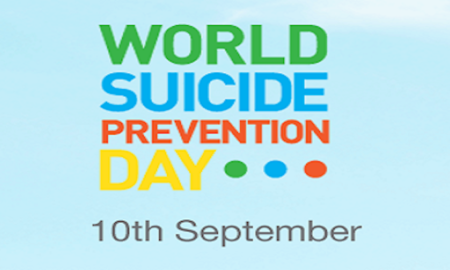Suicidal Ideation
IF YOU ARE IN A CRISIS AND NEED IMMEDIATE HELP CALL 999. YOU CAN ALSO CALL THE SAMARITANS 24/7 HELPLINE ON 116 123.
Suicidal ideation, or suicidal thoughts, is when you have considered suicide and may have the means or a plan to suicide. Many people may have suicidal thoughts and these may come and go and they may increase during times of stress or depression. If you are experiencing an emotional crisis there is hope and support available.
People having suicidal thoughts may find it is as a possible result of other mental health issues such as depression, anxiety or a range of other issues. But this isn’t always the case and suicidal thoughts may not be linked to another condition in many people.
Symptoms of suicidal ideation include;
- A feeling of hopelessness and despair
- Experiencing mood swings outside of our ordinary
- Withdrawing and isolating ourselves from others
- Engaging in risky behaviour that may inadvertently lead to our death
- Changes in alcohol or drug consumption
- Experiencing a heightened state of alert and feeling anxious
- “Sorting ourself out” and putting things in order
- Change in the language we use to include talk of “being a burden”, “wanting to end it all”, “can’t cope anymore”
If you are having suicidal thoughts, you may benefit from talking to a professional with experience of suicide. Everybody’s experience is unique and as your therapist my goal is to accompany you on your own unique journey. Together we can find out more about what’s going on for you. I can support you in understanding more about your symptoms and own warning signs. Having the chance to sit down and talk to someone is a hugely significant first step to take. It is also the first step to make. It’s OK to have suicidal thoughts and it’s also OK to share those with a professional who is able to help you through.
Get in touch with Alana at Southdowns Psychotherapy to find out how therapy can help.

Book a Consultation
Frequently Asked Questions
The terms ‘Psychotherapy’ and ‘Counselling’ are often used interchangeably and essentially they are both characterised by a form of “talking therapy”. You will see many practitioners will use both terms when referring to themselves.
Fundamentally both psychotherapy and counselling have the same goal of providing relief to someone with some sort of psychological symptom or obstacles although there are some subtle differences.
‘Counselling’ is often used to describe a shorter-term process than psychotherapy. A goal in counselling is to enable someone to make better use of resources they may already have in place. Counselling often focuses on a specific issue, life event or experience or on a particular symptom.
‘Psychotherapy’ is often a longer process of treatment and focuses on facilitating the exploration and development of new resources for a person. In psychotherapy you will have the chance to look deeper into the root of your issues. You will have the chance to explore patterns of behaviour, thinking and feeling in your life at a greater depth that allow you to focus more on your way of being in the world.
Psychotherapy training is also a more rigorous and academic process.
Someone who may be in training to be a Psychotherapist may refer to themselves as a Psychotherapeutic Counsellor until they have completed certification to be known as a Psychotherapist.
I hope that my website has given you an overview of who I am and how I work and if you are interested in finding out more I would recommend an initial consultation to meet each other to see if it feels right for you when we are in the room together. We will probably be able to establish quite early on if I am the right person for you.
Choosing a therapist is a very individual choice and I recommend you take the time to meet at least a couple people with a view to having some thought about who you may work best with. I believe that each relationship is individual and unique and it is a privilege for me to get to know people I see and to support them on their therapeutic journey. Relationship is central to building a therapeutic alliance and working together, so trust your instinct to make a decision and start your own journey.
I look forward to meeting you!
Following our initial assessment, if you would like to start sessions together we will agree a day and time for your sessions. I will send you a standard therapy agreement that outlines my commitment to you and it details much of what I would have discussed in the assessment session. This includes details of my professional commitments and of the administrative aspects of our therapeutic relationship. We will both have a signed copy of this agreement.
Payment is due each session and I accept cash or BACS transfers. Any missed sessions with less than 48 hours notice will be payable on the following session.
If you want to work longer term I am also happy to work on monthly payments.
Suicide Related Blog Posts

Myths About Suicide
The 10th September was World Suicide Prevention Day. World Suicide Day is an annual day to encourage awareness about the single biggest killer of men under the age of 45…

How Should We Be Talking About Suicide?
Today is World Suicide Prevention Day. World Suicide Day is an annual day to encourage awareness about the single biggest killer of men under the age of 45 today. As…
Ready to Make a Change? Book an Initial Consultation Today
If you have any questions at all about therapy or would like to make an appointment, get in touch. I will usually be able to respond to you within 24 hours.
